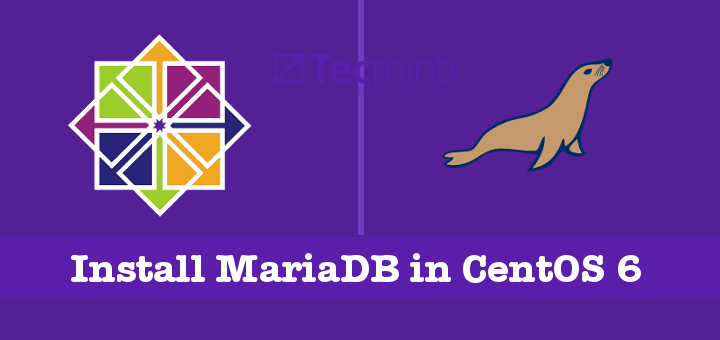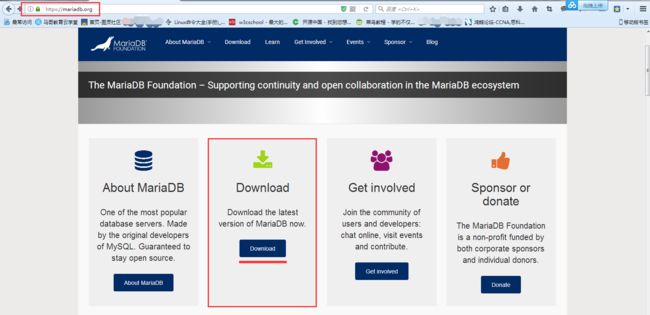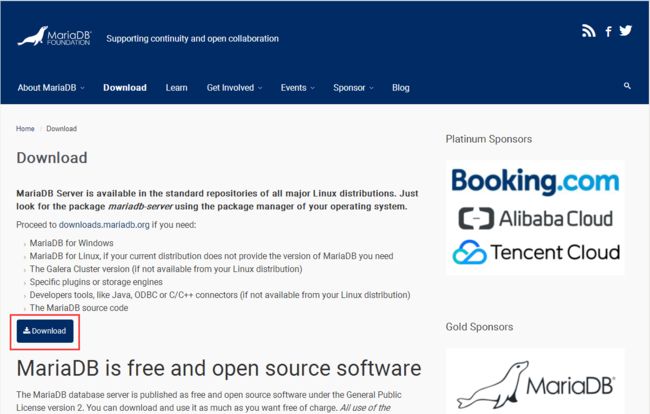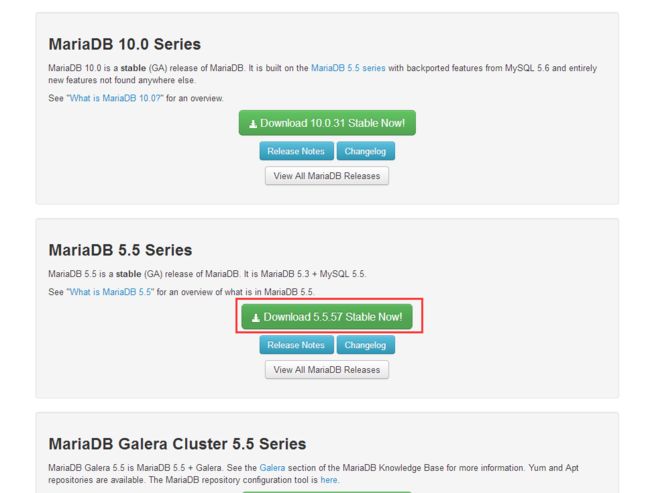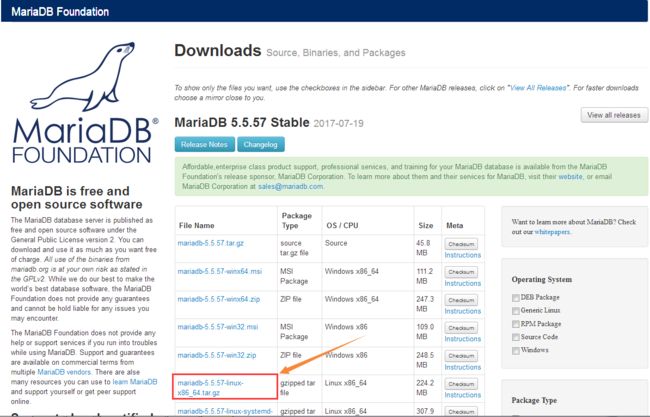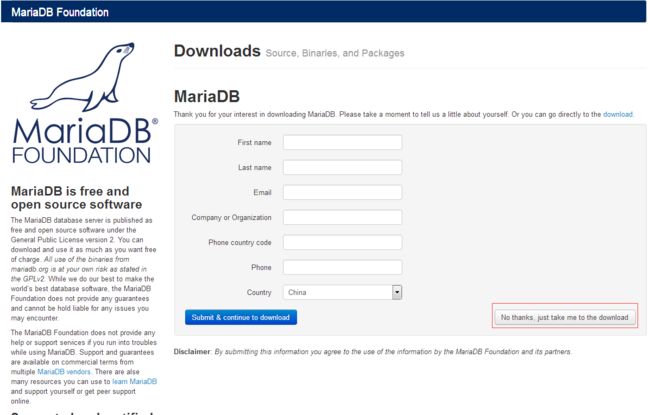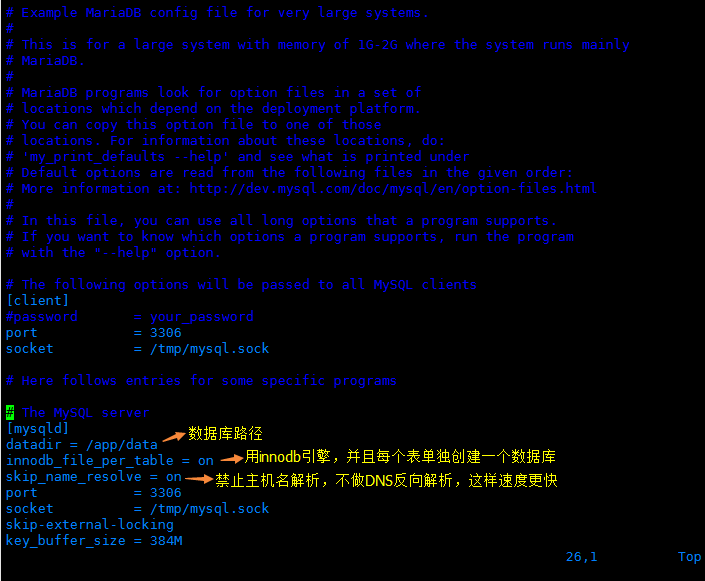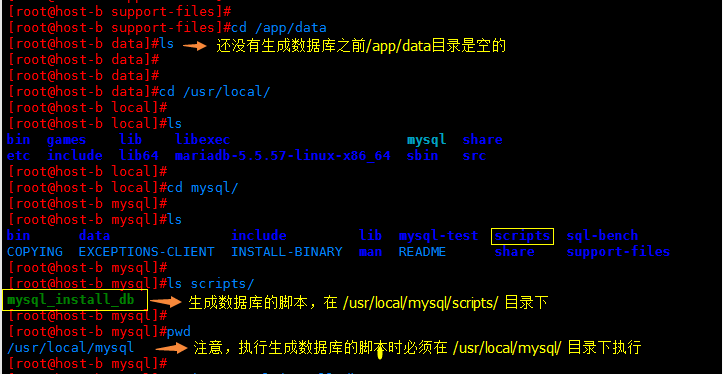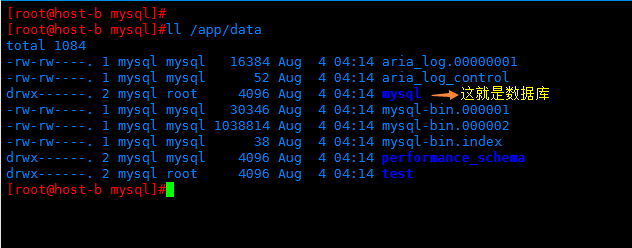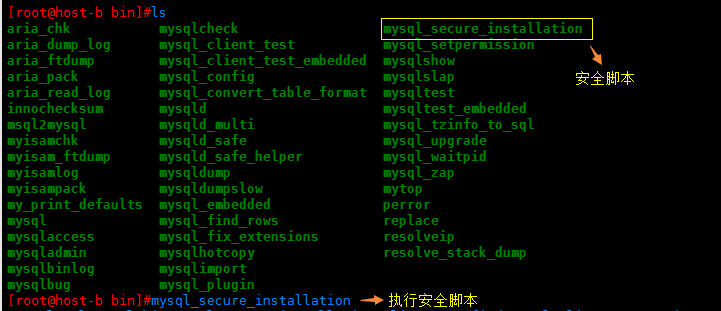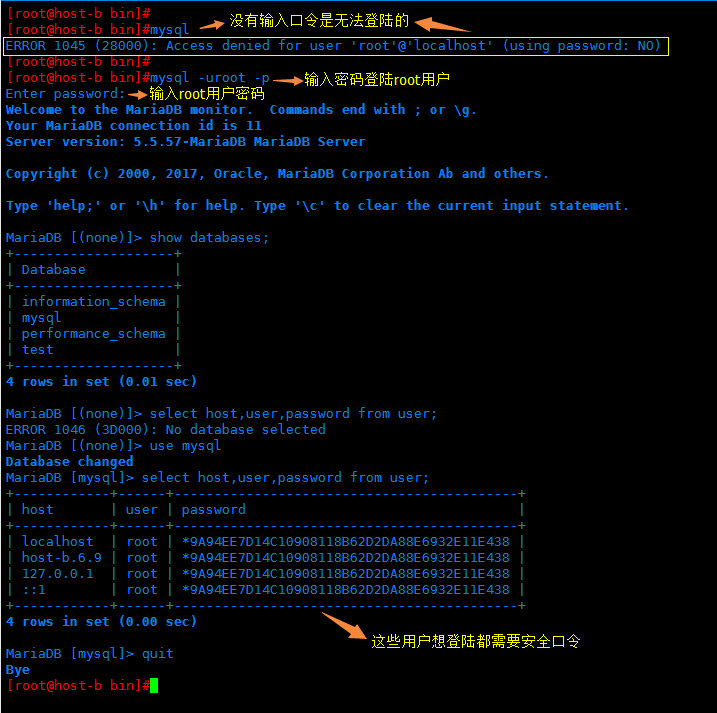- python | reflex,一个无敌的 Python 库!
双木的木
深度学习拓展阅读python库python拓展学习python开发语言算法人工智能深度学习硬件工程异步
本文来源公众号“python”,仅用于学术分享,侵权删,干货满满。原文链接:reflex,一个无敌的Python库!大家好,今天为大家分享一个无敌的Python库-reflex。Github地址:https://github.com/reflex-dev/reflex在软件开发过程中,事件驱动编程模型越来越受欢迎,尤其是在处理复杂的系统和实时交互时。Reflex是一个轻量级的Python库,它专注
- 「SpringCloudAlibaba系列」分布式限流框架Sentinel基本引用|
我有一头小花驴
分布式sentinel
分布式限流框架Sentinel基本引用Sentinel的基本引用使用Sentinel的核心库实现限流,主要分以下几个步骤:定义资源定义限流规则校验规则是否生效Sentinel实现限流引入Sentinel核心库com.alibaba.cspsentinel-core1.8.2复制代码定义普通业务方法privatestaticvoiddoLimiting(){try(Entrylimiting=Sph
- 力扣LeetCode: 219 存在重复元素Ⅱ
不想编程小谭
LeetCodeleetcode算法数据结构
新年快乐!!!题目:给你一个整数数组nums和一个整数k,判断数组中是否存在两个不同的索引i和j,满足nums[i]==nums[j]且abs(i-j)&nums,intk){std::unordered_setwindow;//滑动窗口,存储当前窗口内的元素for(inti=0;ik){window.erase(nums[i-k]);//移除窗口最左边的元素}}returnfalse;//没有找
- CTF-web: YAML是什么
A5rZ
网络安全
YAML(YAMLAin’tMarkupLanguage)是一种常见的序列化数据格式,主要用于配置文件和数据交换。它的设计目标是简洁、易读,并且易于与编程语言交互。YAML使用缩进来表示层次结构,类似于Python的语法。:基本语法结构键值对:YAML中最基本的结构是键值对,用于表示映射(类似于Python的字典)。name:JohnDoeage:30列表:用破折号(-)表示列表项。items:-
- CTF-WEB:PHP伪协议用法总结
A5rZ
phpctfweb
php://伪协议:php://是PHP中的一个虚拟协议(或称为流包装器),用于访问PHP内部流资源。它是PHP提供的内置流协议之一,允许你通过流(stream)方式访问PHP内部的数据流、文件或其他资源。与file://等协议不同,php://并不直接映射到文件系统,而是用于处理PHP特有的资源,如输入输出流、临时文件、PHP自身的内存流等。php://协议是PHP流包装器的一部分,允许在PHP
- CTF-RE 从0到N: 基本按位运算逻辑
A5rZ
算法ctfctf-RE
利用移位快速乘除2^n左移运算(>)等效于将数除以2的某个幂次(舍弃小数部分)。示例:计算8*4和32/4:intx=8;intresult1=x>2;//32/2^2=8printf("%d\n",result2);//输出:8intpower_of_2=1>=1;}printf("Numberof1s:%d\n",count);//输出:4作用:位计数在位图、数据压缩和错误检测中非常常见。2.
- 前端 | es6模块化、promise回调、webpack打包发布
weixin_47249930
前端webpackes6
25.ES6模块化规范25.1定义每个js文件都是独立的模块通过import关键字来向内导入其他模块成员通过export关键字来对外共享模块成员25.2Node.js体验ES6模块化版本为14.15.1及以上(空文件夹终端“type”:“module”,—>生成package.json文件)在package.json的根节点中添加“type”:“module”节点(不写默认是commonJS)配置
- 【第7节】OpenCompass 大模型评测实战
AI扩展坞
大模型LLM书生浦语agent
目录1基础课程笔记1.1研究大模型的评测的必要性1.2OpenCompass介绍1.2.1评测体系开源历程1.2.2如何评测大模型?1.2.2.1设计思路1.2.2.2评测的方法:(1)客观评测(2)主观评测1.2.2.3评测中关于提示词工程优化1.2.3主要产品:工具-基准-榜单三位一体1.2.3.1CompassRank性能榜单1.2.3.2全栈评测工具链1.2.3.3高质量社区-广泛的数据集
- Django 4.0常见问题及其解决方案汇总
昏睡的大熊猫
djangopython
Django4.0,常见问题及其解决方案汇总前言当涉及Django4.0框架时,开发人员经常会面临各种挑战和问题。解决这些问题需要深入了解框架的功能和最佳实践。以下是针对Django4.0常见问题的解决方案汇总,涵盖了从安全性到性能优化的多个方面。这些解决方案旨在帮助开发人员更好地理解和应对在开发过程中可能遇到的困难,确保他们能够构建稳健、高效的Web应用程序。1.如何处理数据库迁移?2.如何处理
- python3调用arcpy地理加权回归_混合地理加权回归python实现代码
weixin_39942995
【实例简介】通过python编码实现MGWR、MGWTR模型的求解。能够解决空间非平稳性问题。【实例截图】【核心代码】mgwr-py└──mgwr-master├──CHANGELOG.md├──LICENSE├──MANIFEST.in├──README.md├──doc│├──Makefile│├──_static││├──images│││├──gwr-mgwr.png│││└──pysal
- python在abaqus中的应用_Python在ABAQUS中的使用【z】
weixin_39835925
【篇首语】首先说,我不懂abaqus。只是一次帮同学处理混合编程问题查到这些资料,借机贴过来。拷贝过程中有些混乱字符,时间关系我没有删干净。因为我也是从转帖转过来,原出处找不到了。#开头的为注释行.9_-m2r;n%h-G第一节,建立建模环境,这一步中py将从abaqus中导入建模所需的所有程序模块frompartimport*接下来定义草图环境mdb.models['Model-1'].Sket
- ctf python大法好_【技术分享】记CTF比赛中发现的Python反序列化漏洞
weixin_39631370
ctfpython大法好
预估稿费:200RMB投稿方式:发送邮件至linwei#360.cn,或登陆网页版在线投稿写在前面的话在前几天,我有幸参加了ToorConCTF(https://twitter.com/toorconctf),而在参加此次盛会的过程中我第一次在Python中发现了序列化漏洞。在我们的比赛过程中,有两个挑战中涉及到了能够接受序列化对象的Python库,而我们通过研究发现,这些Python库中存在的安
- TrayTool:任务栏托盘图标管理神器
高杉峻
本文还有配套的精品资源,点击获取简介:TrayTool是一款精巧的免费软件,专门用于隐藏或显示Windows任务栏托盘区域的图标。它帮助用户清理任务栏杂乱,并根据需求自定义托盘图标显示。作为绿色软件,TrayTool无需安装,即下即用,易于携带和管理。通过提供个性化任务栏体验,它成为优化系统界面的理想工具。1.托盘图标管理的重要性1.1托盘图标管理概述在现代操作系统中,系统托盘区域是用户与软件交互
- python3调用arcpy地理加权回归_分析地理加权回归分析结果的操作方法
weixin_39545269
1从地理加权回归(GWR)工具生成的输出包括以下内容:输出要素类可选系数栅格表面整体模型结果的消息窗口报告显示模型变量和诊断结果的辅助表预测输出要素类2下文中将使用一系列运行GWR和解释GWR结果的步骤对以上每项输出进行说明。通常将以普通最小二乘法(OLS)开始回归分析。有关详细信息,请参阅回归分析基础知识和解释OLS回归结果。回归分析的一种常用方法是在移动到GWR之前识别可能的最佳OLS模型。此
- python炫酷特效代码_推荐几个炫酷的 Python 开源项目
高杉峻
python炫酷特效代码
推荐几个炫酷的Python开源项目项目一:Supervisor简介:Supervisor是实际企业常用的一款Linux/Unix系统下的一个进程管理工具,基于Python开发,可以很方便的监听,启动,停止,重启一个或多个进程,而且当进程意外被杀死时,其可以实现自动恢复,很方便的做到进程自动恢复的功能,提高系统,服务的稳定性,多用于生产环境.下载地址:https://github.com/Super
- 桌面在计算机哪个文件夹,windows的桌面文件夹是哪个?
高杉峻
桌面在计算机哪个文件夹
该楼层疑似违规已被系统折叠隐藏此楼查看此楼Windows7的用户文件夹默认所在位置是系统盘(通常是C盘)下的“\Users”目录之内。该文件夹中储存着所有的用户生成文件,比如你保存在“桌面”上的文件(实际上是保存在C:\Users\YourUserName\Desktop目录之中),再比如你保存在“我的文档”里的文件(实际上是保存在C:\Users\joe\Documents目录之中)。你想把用户
- 等保测评过程中通常会遇到哪些常见问题
黑龙江亿林等级保护测评
安全网络web安全django大数据算法数据结构
常见问题1.信息泄露风险信息系统存储、传输和处理的敏感信息可能被非法获取,导致个人隐私泄露或商业秘密泄露。解决方法:加强数据加密措施,确保数据传输和存储的安全性,定期进行安全培训,提高员工的安全意识和应对能力。2.拒绝服务(DoS)攻击风险针对系统资源的攻击可能导致系统或服务暂时或永久不可用。解决方法:增强系统的抗DoS攻击能力,部署有效的流量监控和清洗设备。3.恶意软件风险包括计算机病毒、木马、
- 企业架构设计方法与实践中企业架构理论以及Zachman TOGAF FEAF DoDAF eTOM ArchiMate Gartner等主要框架和架构介绍
代码讲故事
架构师成长之路企业架构框架设计理论实践方法
企业架构设计方法与实践中企业架构理论以及ZachmanTOGAFFEAFDoDAFeTOMArchiMateGartner等主要框架和架构介绍。企业架构理论首先讨论企业架构的基本概念;然后介绍企业架构的发展;接着重点对几个具有代表性的企业架构框架理论进行说明,包括ZachmanTOGAFFEAFDoDAFeTOMArchiMateGartner…最后进行企业架构框架理论综合分析,分析新时代对企业架
- 实时数据处理与模型推理:利用 Spring AI 实现对数据的推理与分析
drebander
AI编程spring人工智能
在现代企业中,实时数据处理与快速决策已经成为关键需求。通过集成SpringAI,我们不仅可以高效地获取实时数据,还可以将这些数据输入到AI模型中进行推理与分析,以便生成实时的业务洞察。本文将讲解如何通过SpringAI实现实时数据的获取、处理和基于AI模型的推理与分析。我们将探讨整个流程,从数据获取到推理结果的展示,并介绍实际的应用场景。1.系统架构设计实时数据处理和推理系统通常涉及以下几个核心模
- 利用 PyTorch 动态计算图和自动求导机制实现自适应神经网络
drebander
AI编程pytorch神经网络人工智能
在深度学习任务中,不同任务的复杂度千差万别。为了解决复杂任务对模型容量的需求,同时避免简单任务因过度拟合导致的性能下降,我们可以构建一个能够根据任务自动调整网络结构的神经网络。在PyTorch中,动态计算图和自动求导机制为实现这一目标提供了强大的工具。动态网络结构设计PyTorch的动态计算图允许我们根据运行时的输入数据或任务复杂度,动态创建和修改网络结构。动态添加/移除层:可以在训练过程中根据需
- 2021 年 6 月大学英语四级考试真题(第 2 套)——纯享题目版
fo安方
英语—四级CET4四级英语学习
个人主页:fo安方的博客✨个人简历:大家好,我是fo安方,目前中南大学MBA在读,也考取过HCIECloudComputing、CCIESecurity、PMP、CISP、RHCE、CCNPRS、PEST3等证书。兴趣爱好:b站天天刷,题目常常看,运动偶尔做,学习需劳心,寻觅些乐趣。欢迎大家:这里是CSDN,是我记录我的日常学习,偶尔生活的地方,喜欢的话请一键三连,有问题请评论区讨论。导读页:这是
- 为大模型提供webui界面的利器:Open WebUI 完全本地离线部署deepseek r1
skywalk8163
人工智能人工智能deepseekwebui
为大模型提供webui界面的利器:OpenWebUIOpenWebUI的官网:Home|OpenWebUI开源代码:WeTab新标签页OpenWebUI是一个可扩展、功能丰富、用户友好的自托管AI平台,旨在完全离线运行。它支持各种LLM运行程序,如Ollama和OpenAI兼容的API,内置RAG推理引擎,使其成为一个强大的AI部署解决方案。安装使用pip进行安装:pipinstallopen-w
- 【无标题】一不错的网站
shen_haidabiaoge
年鉴下载资源全国行业
最近发现了一个不错的下载网站,叫夏泽网。收录了全国各省市和各行各业的年鉴,比较齐全,更新也很即时,有需要的可以看看。网址是:夏泽网
- 198、Django安全攻略:全方位防护Web应用常见漏洞
多多的编程笔记
django安全前端
Python开发框架Django之安全性:防止常见的Web安全漏洞本文将为大家介绍Python开发框架Django的安全性,重点关注如何防止常见的Web安全漏洞。我们将简要了解Web安全漏洞的背景知识,然后深入探讨Django框架在防止这些漏洞方面的优势,最后提供一些实用的技巧和案例。一、Web安全漏洞概述在互联网时代,Web安全漏洞已经成为黑客攻击的首选目标。常见的Web安全漏洞包括:跨站脚本攻
- MGWR运行报错:在模型校准过程中出现了问题,请仔细检查您的设置和数据。(Something went wrong during model calibration )
老襄
arcgis
参考MGWR使用手册,输入的XY数据需要为投影坐标,笔者是直接使用经纬度坐标出现的报错。转换投影坐标后运行成功。
- 豆包MarsCode 蛇年编程大作战-2025蛇年花样贪吃蛇
BLACK594
豆包MarsCode人工智能vue.js
贪吃蛇游戏是一款经典的休闲游戏,它的核心机制简单且充满趣味。在这个即将到来蛇年,我决定用豆包MarsCode实现他,唤起大家对经典游戏的回忆,为这个特别的年份增添一份别样的乐趣。完整代码及在线体验在线体验-豆包MarsCode花样贪吃蛇游戏素材来自于4399游戏"贪吃蛇竞技场"代码采用Vue实现,豆包MarsCode辅助开发
- rate-limit 一款 java 开源渐进式分布式限流框架使用介绍
老马啸西风
动手写框架java开源spring
项目简介rate-limit是一个为java设计的渐进式限流工具。目的是为了深入学习和使用限流,后续将会持续迭代。特性渐进式实现支持独立于spring使用支持整合spring支持整合spring-boot内置多种限流策略快速开始需求jdk1.7maven3.x+maven导入com.github.houbbrate-limit-core1.1.0入门例子方法定义@RateLimit限流注解放在方法
- 修复ERR_ADDRESS_UNREACHABLE
新青年.
踩坑记录
引言今天在访问服务器地址时出现ERR_ADDRESS_UNREACHABLE,网上资料比较少.问题排查查看自己是不是副WiFi连接,辅助的wifi无法管理自己路由器排查防火墙.排查目标端口有无打开(可以在自己服务器上运行curl测试)地址输错了?是否开启了某种proxy,排查proxy的服务器问题#当然,你可以先排查一下设备的防火墙systemctlstatusfirewalld如果为inacti
- twrp选择sdcard为0B的问题解决
新青年.
踩坑记录刷机其他经验分享
如果刷入的twrp版本在3.2.3版本以下的有无法选择sdcard的bug,必须先格式化Data分区,尝试一下.,请更新twrp版本尝试解决,由于笔者没有找到适用于我手机的(oppor11)的刷机包,所以我选择了去奇兔下载twrp,他的是3.2.3来的,更新好之后进入Rec,继续格式化Data,把Data分区文件系统改为ext4,然后重启到Recovery,再重启到系统,传好文件,再进入rec,之
- 解决异步数据导致数据出现覆盖的问题
qq_38874734
前端
多次请求数据,A先请求,响应时间长B后请求,响应时间短,预期获得B数据,结果被A覆盖,解决办法:axios的cancelToken参考链接https://stackoverflow.com/questions/38329209/how-to-cancel-abort-ajax-request-in-axioshttps://blog.csdn.net/yexudengzhidao/article/
- 辗转相处求最大公约数
沐刃青蛟
C++漏洞
无言面对”江东父老“了,接触编程一年了,今天发现还不会辗转相除法求最大公约数。惭愧惭愧!
为此,总结一下以方便日后忘了好查找。
1.输入要比较的两个数a,b
忽略:2.比较大小(因为后面要的是大的数对小的数做%操作)
3.辗转相除(用循环不停的取余,如a%b,直至b=0)
4.最后的a为两数的最大公约数
&
- F5负载均衡会话保持技术及原理技术白皮书
bijian1013
F5负载均衡
一.什么是会话保持? 在大多数电子商务的应用系统或者需要进行用户身份认证的在线系统中,一个客户与服务器经常经过好几次的交互过程才能完成一笔交易或者是一个请求的完成。由于这几次交互过程是密切相关的,服务器在进行这些交互过程的某一个交互步骤时,往往需要了解上一次交互过程的处理结果,或者上几步的交互过程结果,服务器进行下
- Object.equals方法:重载还是覆盖
Cwind
javagenericsoverrideoverload
本文译自StackOverflow上对此问题的讨论。
原问题链接
在阅读Joshua Bloch的《Effective Java(第二版)》第8条“覆盖equals时请遵守通用约定”时对如下论述有疑问:
“不要将equals声明中的Object对象替换为其他的类型。程序员编写出下面这样的equals方法并不鲜见,这会使程序员花上数个小时都搞不清它为什么不能正常工作:”
pu
- 初始线程
15700786134
暑假学习的第一课是讲线程,任务是是界面上的一条线运动起来。
既然是在界面上,那必定得先有一个界面,所以第一步就是,自己的类继承JAVA中的JFrame,在新建的类中写一个界面,代码如下:
public class ShapeFr
- Linux的tcpdump
被触发
tcpdump
用简单的话来定义tcpdump,就是:dump the traffic on a network,根据使用者的定义对网络上的数据包进行截获的包分析工具。 tcpdump可以将网络中传送的数据包的“头”完全截获下来提供分析。它支 持针对网络层、协议、主机、网络或端口的过滤,并提供and、or、not等逻辑语句来帮助你去掉无用的信息。
实用命令实例
默认启动
tcpdump
普通情况下,直
- 安卓程序listview优化后还是卡顿
肆无忌惮_
ListView
最近用eclipse开发一个安卓app,listview使用baseadapter,里面有一个ImageView和两个TextView。使用了Holder内部类进行优化了还是很卡顿。后来发现是图片资源的问题。把一张分辨率高的图片放在了drawable-mdpi文件夹下,当我在每个item中显示,他都要进行缩放,导致很卡顿。解决办法是把这个高分辨率图片放到drawable-xxhdpi下。
&nb
- 扩展easyUI tab控件,添加加载遮罩效果
知了ing
jquery
(function () {
$.extend($.fn.tabs.methods, {
//显示遮罩
loading: function (jq, msg) {
return jq.each(function () {
var panel = $(this).tabs(&
- gradle上传jar到nexus
矮蛋蛋
gradle
原文地址:
https://docs.gradle.org/current/userguide/maven_plugin.html
configurations {
deployerJars
}
dependencies {
deployerJars "org.apache.maven.wagon
- 千万条数据外网导入数据库的解决方案。
alleni123
sqlmysql
从某网上爬了数千万的数据,存在文本中。
然后要导入mysql数据库。
悲剧的是数据库和我存数据的服务器不在一个内网里面。。
ping了一下, 19ms的延迟。
于是下面的代码是没用的。
ps = con.prepareStatement(sql);
ps.setString(1, info.getYear())............;
ps.exec
- JAVA IO InputStreamReader和OutputStreamReader
百合不是茶
JAVA.io操作 字符流
这是第三篇关于java.io的文章了,从开始对io的不了解-->熟悉--->模糊,是这几天来对文件操作中最大的感受,本来自己认为的熟悉了的,刚刚在回想起前面学的好像又不是很清晰了,模糊对我现在或许是最好的鼓励 我会更加的去学 加油!:
JAVA的API提供了另外一种数据保存途径,使用字符流来保存的,字符流只能保存字符形式的流
字节流和字符的难点:a,怎么将读到的数据
- MO、MT解读
bijian1013
GSM
MO= Mobile originate,上行,即用户上发给SP的信息。MT= Mobile Terminate,下行,即SP端下发给用户的信息;
上行:mo提交短信到短信中心下行:mt短信中心向特定的用户转发短信,你的短信是这样的,你所提交的短信,投递的地址是短信中心。短信中心收到你的短信后,存储转发,转发的时候就会根据你填写的接收方号码寻找路由,下发。在彩信领域是一样的道理。下行业务:由SP
- 五个JavaScript基础问题
bijian1013
JavaScriptcallapplythisHoisting
下面是五个关于前端相关的基础问题,但却很能体现JavaScript的基本功底。
问题1:Scope作用范围
考虑下面的代码:
(function() {
var a = b = 5;
})();
console.log(b);
什么会被打印在控制台上?
回答:
上面的代码会打印 5。
&nbs
- 【Thrift二】Thrift Hello World
bit1129
Hello world
本篇,不考虑细节问题和为什么,先照葫芦画瓢写一个Thrift版本的Hello World,了解Thrift RPC服务开发的基本流程
1. 在Intellij中创建一个Maven模块,加入对Thrift的依赖,同时还要加上slf4j依赖,如果不加slf4j依赖,在后面启动Thrift Server时会报错
<dependency>
- 【Avro一】Avro入门
bit1129
入门
本文的目的主要是总结下基于Avro Schema代码生成,然后进行序列化和反序列化开发的基本流程。需要指出的是,Avro并不要求一定得根据Schema文件生成代码,这对于动态类型语言很有用。
1. 添加Maven依赖
<?xml version="1.0" encoding="UTF-8"?>
<proj
- 安装nginx+ngx_lua支持WAF防护功能
ronin47
需要的软件:LuaJIT-2.0.0.tar.gz nginx-1.4.4.tar.gz &nb
- java-5.查找最小的K个元素-使用最大堆
bylijinnan
java
import java.util.Arrays;
import java.util.Random;
public class MinKElement {
/**
* 5.最小的K个元素
* I would like to use MaxHeap.
* using QuickSort is also OK
*/
public static void
- TCP的TIME-WAIT
bylijinnan
socket
原文连接:
http://vincent.bernat.im/en/blog/2014-tcp-time-wait-state-linux.html
以下为对原文的阅读笔记
说明:
主动关闭的一方称为local end,被动关闭的一方称为remote end
本地IP、本地端口、远端IP、远端端口这一“四元组”称为quadruplet,也称为socket
1、TIME_WA
- jquery ajax 序列化表单
coder_xpf
Jquery ajax 序列化
checkbox 如果不设定值,默认选中值为on;设定值之后,选中则为设定的值
<input type="checkbox" name="favor" id="favor" checked="checked"/>
$("#favor&quo
- Apache集群乱码和最高并发控制
cuisuqiang
apachetomcat并发集群乱码
都知道如果使用Http访问,那么在Connector中增加URIEncoding即可,其实使用AJP时也一样,增加useBodyEncodingForURI和URIEncoding即可。
最大连接数也是一样的,增加maxThreads属性即可,如下,配置如下:
<Connector maxThreads="300" port="8019" prot
- websocket
dalan_123
websocket
一、低延迟的客户端-服务器 和 服务器-客户端的连接
很多时候所谓的http的请求、响应的模式,都是客户端加载一个网页,直到用户在进行下一次点击的时候,什么都不会发生。并且所有的http的通信都是客户端控制的,这时候就需要用户的互动或定期轮训的,以便从服务器端加载新的数据。
通常采用的技术比如推送和comet(使用http长连接、无需安装浏览器安装插件的两种方式:基于ajax的长
- 菜鸟分析网络执法官
dcj3sjt126com
网络
最近在论坛上看到很多贴子在讨论网络执法官的问题。菜鸟我正好知道这回事情.人道"人之患好为人师" 手里忍不住,就写点东西吧. 我也很忙.又没有MM,又没有MONEY....晕倒有点跑题.
OK,闲话少说,切如正题. 要了解网络执法官的原理. 就要先了解局域网的通信的原理.
前面我们看到了.在以太网上传输的都是具有以太网头的数据包.
- Android相对布局属性全集
dcj3sjt126com
android
RelativeLayout布局android:layout_marginTop="25dip" //顶部距离android:gravity="left" //空间布局位置android:layout_marginLeft="15dip //距离左边距
// 相对于给定ID控件android:layout_above 将该控件的底部置于给定ID的
- Tomcat内存设置详解
eksliang
jvmtomcattomcat内存设置
Java内存溢出详解
一、常见的Java内存溢出有以下三种:
1. java.lang.OutOfMemoryError: Java heap space ----JVM Heap(堆)溢出JVM在启动的时候会自动设置JVM Heap的值,其初始空间(即-Xms)是物理内存的1/64,最大空间(-Xmx)不可超过物理内存。
可以利用JVM提
- Java6 JVM参数选项
greatwqs
javaHotSpotjvmjvm参数JVM Options
Java 6 JVM参数选项大全(中文版)
作者:Ken Wu
Email:
[email protected]
转载本文档请注明原文链接 http://kenwublog.com/docs/java6-jvm-options-chinese-edition.htm!
本文是基于最新的SUN官方文档Java SE 6 Hotspot VM Opt
- weblogic创建JMC
i5land
weblogicjms
进入 weblogic控制太
1.创建持久化存储
--Services--Persistant Stores--new--Create FileStores--name随便起--target默认--Directory写入在本机建立的文件夹的路径--ok
2.创建JMS服务器
--Services--Messaging--JMS Servers--new--name随便起--Pers
- 基于 DHT 网络的磁力链接和BT种子的搜索引擎架构
justjavac
DHT
上周开发了一个磁力链接和 BT 种子的搜索引擎 {Magnet & Torrent},本文简单介绍一下主要的系统功能和用到的技术。
系统包括几个独立的部分:
使用 Python 的 Scrapy 框架开发的网络爬虫,用来爬取磁力链接和种子;
使用 PHP CI 框架开发的简易网站;
搜索引擎目前直接使用的 MySQL,将来可以考虑使
- sql添加、删除表中的列
macroli
sql
添加没有默认值:alter table Test add BazaarType char(1)
有默认值的添加列:alter table Test add BazaarType char(1) default(0)
删除没有默认值的列:alter table Test drop COLUMN BazaarType
删除有默认值的列:先删除约束(默认值)alter table Test DRO
- PHP中二维数组的排序方法
abc123456789cba
排序二维数组PHP
<?php/*** @package BugFree* @version $Id: FunctionsMain.inc.php,v 1.32 2005/09/24 11:38:37 wwccss Exp $*** Sort an two-dimension array by some level
- hive优化之------控制hive任务中的map数和reduce数
superlxw1234
hivehive优化
一、 控制hive任务中的map数: 1. 通常情况下,作业会通过input的目录产生一个或者多个map任务。 主要的决定因素有: input的文件总个数,input的文件大小,集群设置的文件块大小(目前为128M, 可在hive中通过set dfs.block.size;命令查看到,该参数不能自定义修改);2.
- Spring Boot 1.2.4 发布
wiselyman
spring boot
Spring Boot 1.2.4已于6.4日发布,repo.spring.io and Maven Central可以下载(推荐使用maven或者gradle构建下载)。
这是一个维护版本,包含了一些修复small number of fixes,建议所有的用户升级。
Spring Boot 1.3的第一个里程碑版本将在几天后发布,包含许多
